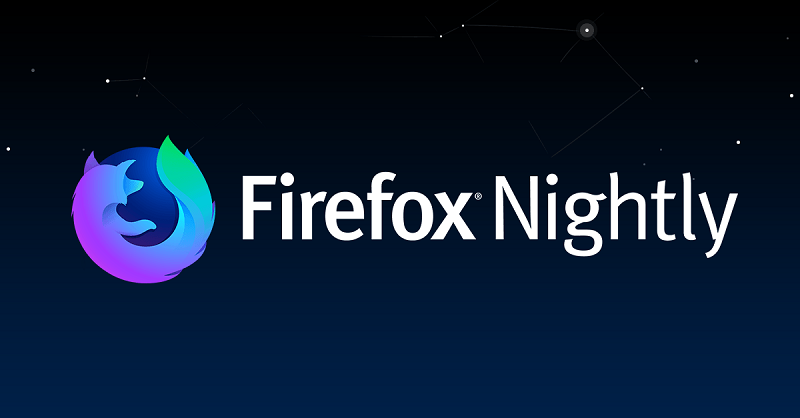Microsoft reportedly agrees to acquire GitHub
The website is popular for storing and sharing software code.
JUNE 3, 2018 1:55 PM IST GitHub brings together the world's largest community of developers to discover, share, and build better software.
GitHub brings together the world's largest community of developers to discover, share, and build better software. Github
New reports out of Redmond this weekend have Microsoft set to purchase the popular coding site GitHub. Bloomberg is citing “people familiar with the matter,” stating that the deal could be announced as early as tomorrow.
The new story follows similar reports late last week of discussions between the two parties. The deal certainly makes sense for Microsoft, as the software giant continues to actively court developers. As for GitHub, the company is said to have been “impressed” by Satya Nadella, who has actively courted coders and coding initiatives since taking the reins at the company, back in 2014.
“The opportunity for developers to have broad impact on all parts of society has never been greater,” Nadella told the crowd at his address during last year’s Build. “But with this opportunity comes enormous responsibility.”
Dramatic, perhaps, but acquiring GitHub would give the company access to some 27 million software developers — though not all of them are thrilled by the idea of GitHub being taken over by Microsoft.
GitHub, meanwhile, has been struggling to replace Chris Wanstrath, nearly a year after he announced plans to step down from his role as CEO. A co-founder of the service, he had returned to the top spot three years prior.
Earlier this year, meanwhile, GitHub was hit with the largest DDoS attack on record — though the site managed to come back online after 10 or so minutes.
Details of the planned deal — and what, precisely, this will mean for GitHub’s loyal community — have yet to be announced. We’ve reached out to Microsoft for comment.
Update: Microsoft’s corporate VP of communications Frank X. Shaw tells us that the company has no comment. “You know we don’t ever comment on this sort of rumor,” he said.
Elon Musk responds to Boeing plan to put first human on Mars
"Do it."
JUNE 1, 2018 9:35 AM IST The SpaceXMars Concept art shows a future civilization
The SpaceXMars Concept art shows a future civilizationSpaceX
Once upon a time, the space race was all about the US and Russia. Now it's about private companies competing for innovations and bragging rights. No accomplishment would be bigger than landing a human on Mars.
Boeing says it will get to the Red Planet before SpaceX does. SpaceX founder Elon Musk had a short response to that idea: "Do it."
This mild war of words started when the TheStreet interviewed Boeing CEO Dennis Muilenburg, who told the publication, "I firmly believe that the first person to step foot on Mars will get there on a Boeing rocket."
TheStreet founder Jim Cramer shared this sentiment on Twitter and Musk responded with his two-word statement: "Do it."
Boeing CEO: We Will Beat Elon Musk's SpaceX to Mars via @BrianSozzi https://t.co/cQDhNdNyOb
— Jim Cramer (@jimcramer) June 1, 2018
Do it
— Elon Musk (@elonmusk) June 1, 2018
SpaceX says it wants to send a cargo mission to Mars in 2022 while targeting 2024 for a crewed mission using an advanced rocket system called the BFR. Musk sees this as the first step to creating a self-sustaining human civilization on Mars.
If would be interesting if the SpaceX BFR arrived at Mars and found a Boeing rocket already there. Boeing is currently working with NASA on a Space Launch System meant to propel people and cargo "beyond our moon and into deep space."
Mozilla's Firefox tries closing more privacy holes with new network tech
Mashing up two network technologies -- DNS and HTTPS -- thwarts snooping and tampering.
JUNE 1, 2018 6:35 PM IST A free Web browser
A free Web browserMozilla Corporation
Browser makers are trying to thwart network snoopers by encrypting your connections to the web servers that host websites, but Mozilla on Friday began a project to go one step further.
Firefox Nightly, a rough-around-the-edges test version of Mozilla's browser, now includes technology called DNS over HTTPS, Mozilla said. DNS is the Domain Name System used to find the numeric addresses needed to communicate with computers across the network -- 64.30.228.118 for CNET.com, for example -- and HTTPS is the secure version of the Hypertext Transfer Protocol used to fetch data from websites.
The combination, called DoH, prevents middlemen from figuring out what internet servers you're trying to reach -- and from tampering with results to do wicked things like sending you to a fake version of a website.
"Domain Name Service is one of the oldest parts of internet architecture, and remains one that has largely been untouched by efforts to make the web safer and more private," Mozilla said in a blog post. "We're working to change that by encrypting DNS queries and by testing a service that keeps DNS providers from collecting and sharing your browsing history."
Privacy is on the front burner these days as Facebook and Cambridge Analytica have revealed just little we actually have. Firefox's embrace of DoH wouldn't have prevented that particular problem, but it does help seal other holes. Privacy and security are technical challenges that aren't ever finished, only gradually improved.
Cloudflare DNS partnership
Mozilla also is taking a number of other measures this year to improve privacy in Firefox, like clamping down on behavior tracking and blocking ad retargeting -- that sometimes creepy situation where you visit a website then shortly after see an ad for it on a different website, or see the same ad follow you around the web.
When it comes to actually fulfilling a DNS request, Mozilla needs a partner that offers DNS services to its privacy standards. It picked Cloudflare, an internet infrastructure company that recently launched its own publicly available DNS service.
"We've chosen Cloudflare because they agreed to a very strong privacy agreement that protects your data," Mozilla said.
In Firefox Nightly, Mozilla will test both conventional DNS and DoH, comparing the results to see if there are any problems.
Google's also tackling DNS privacy
Google is trying a related technology called DNS over TLS that accomplishes much the same thing. It's built the feature into Android P, the next version of its mobile phone software. That can already be tested in beta form if you have a compatible phone.
"In the future, we hope that all operating systems will include secure transports for DNS, to provide better protection and privacy for all users on every new connection," Google programmers Erik Kline and Ben Schwartz said in an April blog post about the move.
Apple and Microsoft team up to help the blind use computers -- with plug-and-play braille
The USB HID standard should make it easier to plug in a braille display.
MAY 31, 2018 10:45 PM IST A boy uses a braille interface with a computer.
A boy uses a braille interface with a computer.Plug-and-Play Braille
Apple, Microsoft and a handful of other tech companies are making it so you can plug in a braille display much like a mouse or keyboard.
The companies have teamed up with the USB Implementers Forum, a nonprofit that promotes adoption of USB tech, to integrate braille into a new USB Human Interface Device (HID) standard (PDF), according to Engadget.
People with vision disabilities often rely on braille, but some braille displays only work with certain PCs or require additional software and drivers to use. The new HID standard helps manufacturers build braille displays so they work across different computers and operating systems. So people could theoretically take their braille display, plug it into any computer and start using it. Much like you can plug in a USB keyboard and start typing right away.
We've seen Apple make it easier for people with disabilities to use its tech with functions like text-to-speech and Bluetooth pairing with hearing aids. Microsoft also recently created an Xbox controller specifically for disabled players.